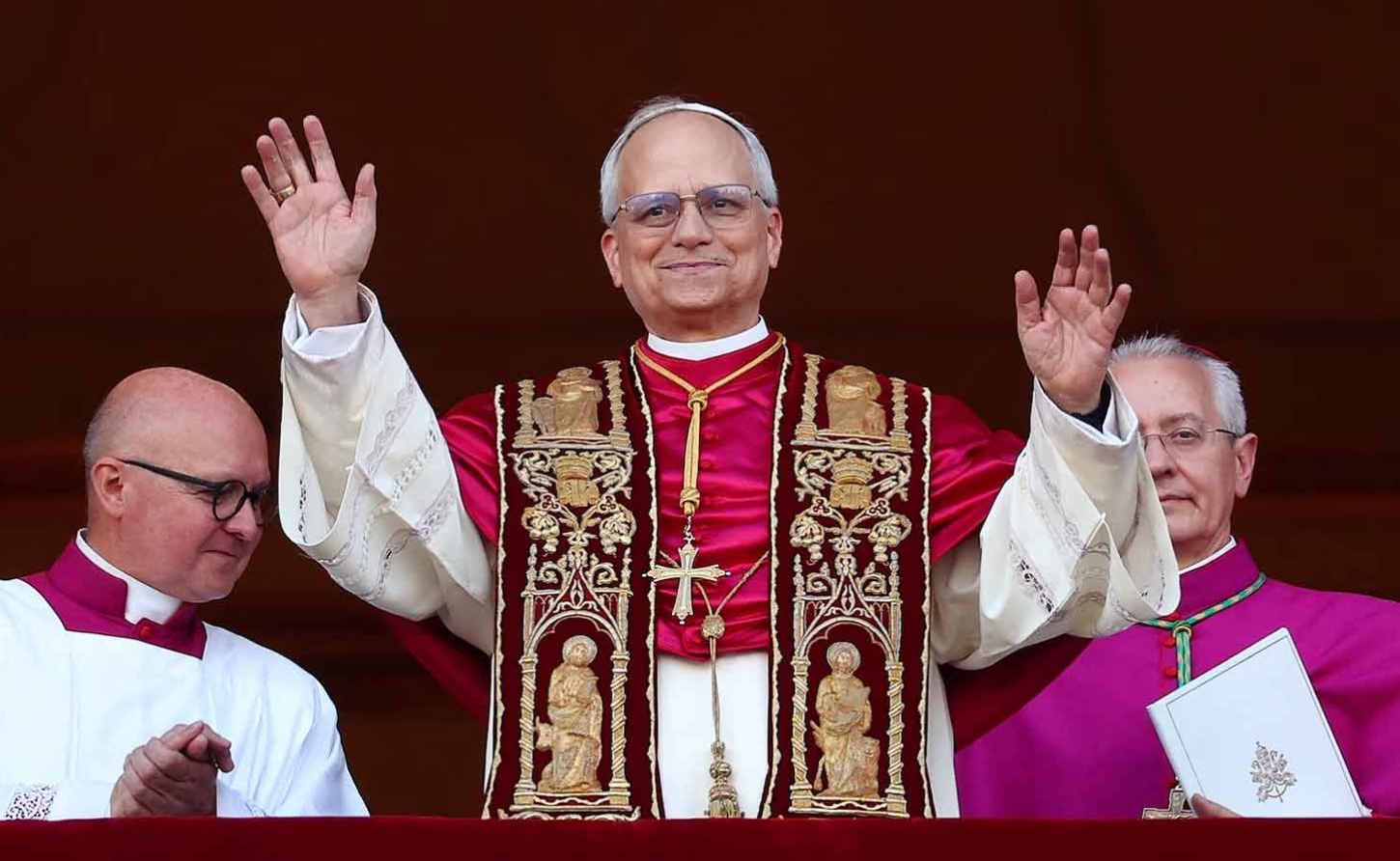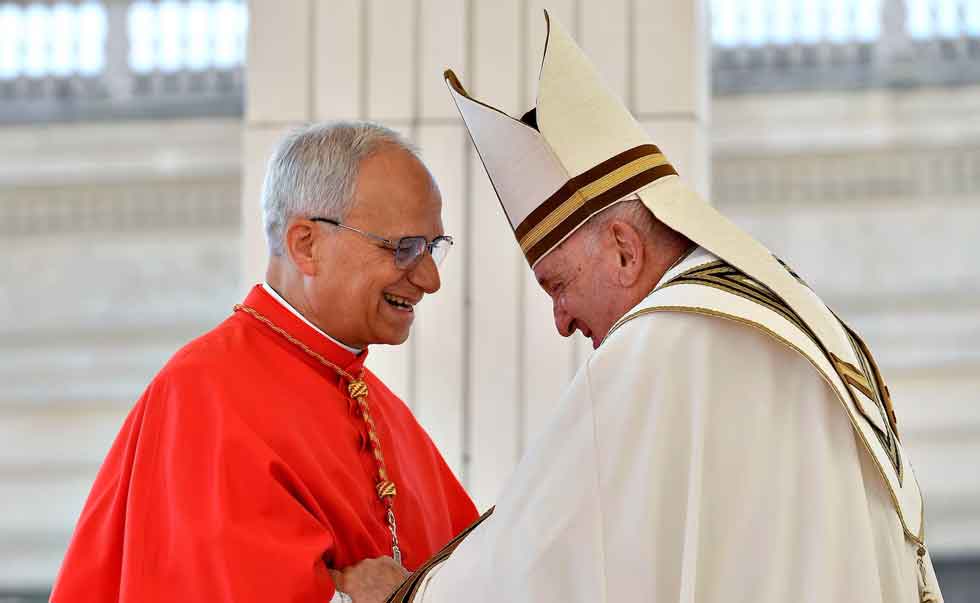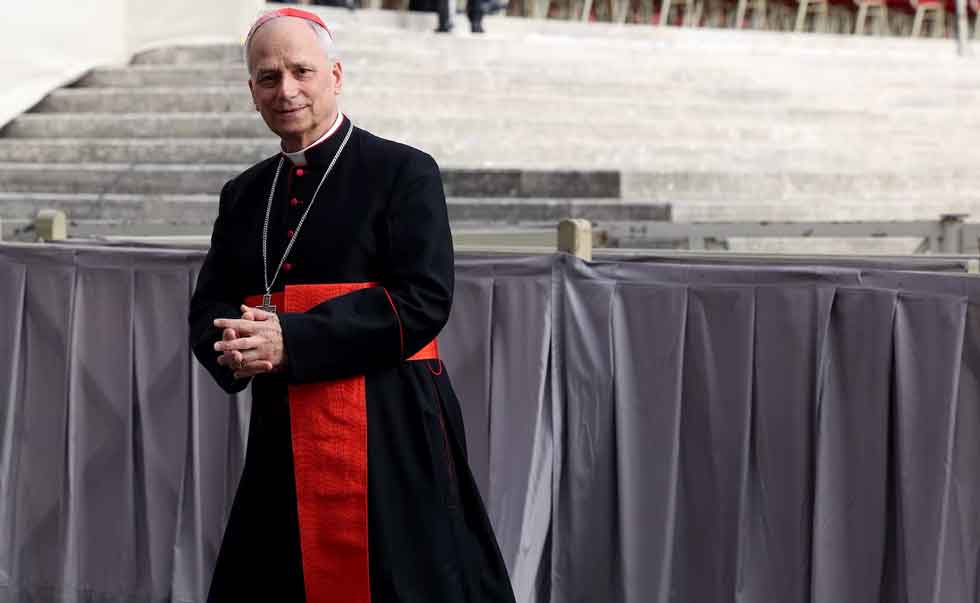RELIGION | American Cardinal Robert Prevost Elected as Pope Leo XIV

MONTEGO BAY, Jamaica May 8, 2025 - The Catholic Church has a new pope. North American and Peruvian Cardinal Robert Prevost has been elected as the 267th pontiff, choosing the name Leo XIV, as announced by a senior cardinal deacon. At 69 years old, the Chicago native makes history as the first American pope and is regarded as a diplomat within the church.
Following Pope Francis's death on April 21, 133 cardinals—the church's highest-ranking clergy—gathered in Rome for a secret conclave to elect a new leader. On Thursday afternoon local time, white smoke billowed from the Sistine Chapel chimney and St. Peter's Basilica bells rang out, signaling the successful election of a new pope after at least four rounds of voting where a cardinal received the required two-thirds majority.

Historical Significance of the Name
According to the director of the Holy See, the new pope's chosen name is a "direct reference to Leo XIII," who led the Catholic Church from 1878 until 1903. Pope Leo XIII was a founding figure of Catholic social justice tradition, known for his encyclical "Rerum Novarum" ("Of New Things"), which is considered the foundation for the Church's modern social doctrine.
Father Vito Crincoli told ABC News, "Looking to the history, Leos were strong popes. Like Leo XIII, he loved his people. He loved his people. His people, he considered man not a machine. A man's work was a reflection of his dignity." Father Crincoli added, "We don't know this yet, but it'd be really interesting to know why he took the name Leo."
While popes aren't required to change their names, every pontiff for the past 470 years has done so, typically choosing the name of a predecessor to honor them and signal their intention to follow their example. Pope Francis was a notable exception, selecting the name of St. Francis of Assisi, the 13th century patron saint of animals and the environment, rather than a former pope.
Path to the Papacy
Pope Leo began emerging as a frontrunner for the papacy in the days before the conclave began, according to Rev. James Martin, a papal contributor to ABC News. Following the announcement, Martin told ABC News that he knows Leo personally, describing him as "very down-to-earth" and a "very kind person, very reserved."
Pope Leo was the only U.S. cardinal on the short list of potential popes (known as "papabiles") compiled by The Associated Press following Pope Francis's death. Besides being the first American pope, Leo is also the first Augustinian friar to be elected pontiff.
Education and Religious Journey
Leo graduated from Villanova University, the only Augustinian Catholic university in the United States, in 1977. The university's president, Rev. Peter Donohue, released a statement celebrating the election: "As an Augustinian Catholic institution, we celebrate this significant day for our University community and the global Church. Villanova, built on the teachings of St. Augustine, has always been grounded in advancing a deeper understanding of the fundamental relationship between faith and reason—between spirituality and wisdom.
With today's election of His Holiness, Pope Leo XIV, I cannot help but reflect on what his Augustinian papacy will mean to our University community and our world. Known for his humility, gentle spirit, prudence and warmth, Pope Leo XIV's leadership offers an opportunity to reaffirm our commitment to our educational mission."
According to his Vatican Press biography, Leo entered the novitiate of the Order of Saint Augustine in the province of Our Lady of Good Counsel in Saint Louis in 1977. He earned a theology diploma from the Catholic Theological Union of Chicago in 1982 and went on to study canon law at the Pontifical Saint Thomas Aquinas University.
He received his priestly ordination on June 19, 1982, and after obtaining his licentiate in 1984, he was sent to work in the mission of Chulucanas, Piura, Peru, from 1985 to 1986.
Service in Peru and at the Vatican

Pope Francis brought Leo to work at the Vatican after first appointing him in 2014 as the bishop of Chiclayo, Peru. Leo, now a naturalized citizen of Peru, has spent most of his time in that country, working as a teacher, missionary, and parish priest. During his balcony address at St. Peter's Basilica, he briefly spoke in Spanish and specifically greeted the Diocese of Chiclayo in Peru.
In April 2020, Francis appointed him as the apostolic administrator of the diocese of Callao, also in Peru. Since 2023, Leo has held the position of Prefect of the Dicastery for Bishops at the Vatican, responsible for vetting nominations for bishops worldwide. He also currently serves as the president of the Pontifical Commission for Latin America.
Vision for the Church
In an October 2024 interview with Vatican News, Pope Leo stated that a "bishop is not supposed to be a little prince sitting in his kingdom, but rather called authentically to be humble, to be close to the people he serves, to walk with them and to suffer with them."
During a 2023 interview with the Catholic News Service, when asked how he responds to problems with bishops or dioceses, he said he reminds clergymen to reflect on their oath to "live and work in communion with the Holy Father." He added, "The spirit of synodality includes a need and desire to listen to not only the bishop himself, but to many people in the diocese to see what's the best way to promote authentic church in each and every diocese in the world."
This historic election marks a significant shift for the Catholic Church as it welcomes its first American pope and continues to navigate its global mission under new leadership.
-30-
